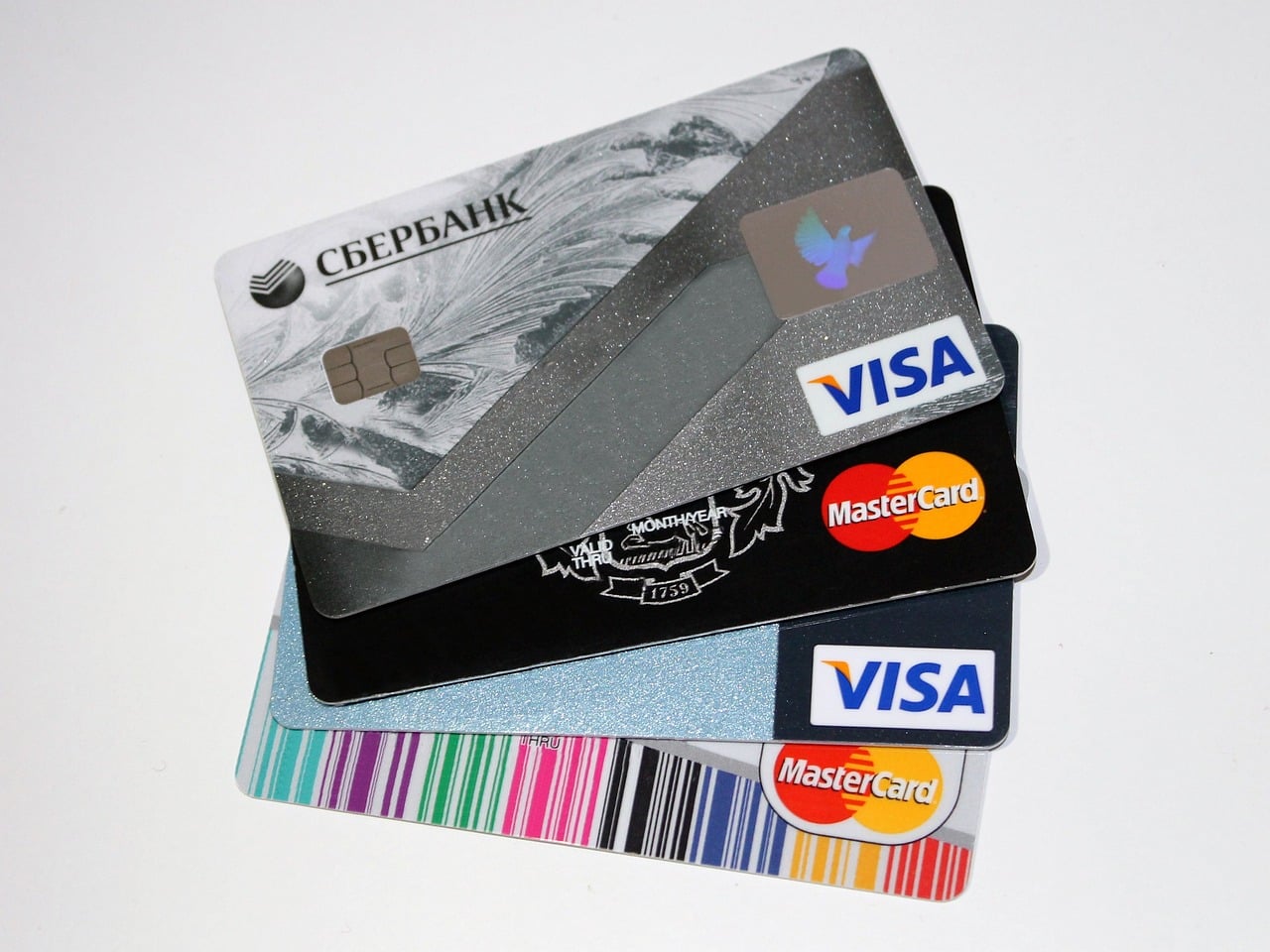Not every time you want to make a purchase, you have that cash with you. Sometimes you need that credit. And that’s why this charge card vs credit card comparison is essential. It will help you make a better choice on the line of credit you might want to follow.
These two cards look pretty identical. In fact, you might not distinguish the two by just looking at them. But that doesn’t mean that they are similar.
The truth? They are two uniquely designed financial tools that help users to enjoy the convenience of plastic money. So, how exactly do they differ from each other?
This guide gives us a detailed charge card vs credit card comparison. It explores everything from the differences in how the two cards work to how much money it costs you to use any of the two.
Let’s get a closer look;
How Does a Credit Card Work?

A credit card is a revolving credit line. It allows users to borrow money from a financial institution, up to a predetermined credit limit, to buy goods or services. This means that when you make purchases using your credit card, you’re essentially borrowing money from the card issuer.
Generally, you will receive a statement at the end of each billing cycle detailing the balance owed, minimum payment due, and due date. You have the flexibility to pay off the full balance or make minimum payments. However, you should note that any outstanding balance accrues interest.
How Does a Charge Card Work?
A charge card, on the other hand, is quite different from a credit card. While it allows you to make purchases on credit, unlike a credit card, you are required to pay the full balance every month.
Charge cards typically have no preset spending limits. As such, your spending ability adjusts based on your payment history and creditworthiness. This ensures that you cannot carry forward a balance, putting you into a debt cycle.
Additionally, there is no interest charged as long as you pay your bill in full and on time.
Main Differences Between Charge Cards and Credit Cards
1. Eligibility Requirements
Credit cards usually have varying eligibility requirements. These are influenced by various factors, including minimum income, credit score, and credit history.
For instance, you will need to have at least a fair or good credit score to qualify for a card. Also, the amount you can charge on the will be determined by your creditworthiness.
In contrast, charge cards often have stricter eligibility criteria since they require you to pay the entire balance each month. This means a charge card issuer may closely evaluate your financial standing before approving your application.
2. Fees
Credit cards often come with several fees, such as annual, late payment, and balance transfer fees. Additionally, you will be charged interest if you carry a balance on your credit card. All these charges and fees depend on the type of card and the issuer.
Charge cards, on the other hand, accrue zero interest charges since you must pay the balance in full every month. However, some charge cards may have annual fees, depending on the issuer and the card’s benefits. Also, you’ll certainly be slapped with a late payment fee if you don’t pay the balance on time.
3. Payments
When it comes to payments on the amount owed, these two cards have different approaches. For example, with credit cards, you have the option to pay the minimum amount due, a specific amount, or the full balance. Paying the minimum amount extends your debt and incurs interest charges.
In contrast, charge cards require you to pay the full balance every month, ensuring you stay debt-free. They are designed to prevent you from accruing more debt.
4. Credit Utilization Ratio
The term credit utilization refers to the percentage of your available credit that you are using. And it significantly affects your credit score. According to Experian, a credit bureau, you should strive to keep the ratio below 30%.
Credit cards allow you to carry a balance, affecting your credit utilization ratio. In contrast, charge cards do not report credit limits, which means they don’t impact your credit utilization ratio.
5. Alternatives
Generally, there are more than enough options to choose from when it comes to credit cards. But you should note that each of the card options will have different terms, including fees and interest. So, do your research before settling on a particular card.
Some incredible credit card options include:
On the other hand, there are not so many options for charge cards. But you’ll still find a good number of cards to choose from. Some of the most popular charge cards include:
See Related: What is an Unsecured Credit Card? Exploring the Features, Pros, Cons, and Alternatives
Pros and Cons of a Credit Card

Everything in this world has its good and bad side, that’s for sure. And credit cards are not any different. Therefore, to help you make a reasonable choice, let’s explore both the bright and the dark side of these cards.
Pros
Here is what might compel you to go for a credit card;
One of the significant advantages of a credit card is the flexibility it offers in making payments. Cardholders have three options here. You can pay the minimum amount due, the full balance, or a specific amount each month.
This flexibility can be quite beneficial, especially when you are facing temporary financial constraints. It allows you to manage your cash flow effectively.
-
Option to Carry a Balance
We already mentioned this earlier, but let us handle it individually.
Credit cards allow you to carry a balance from one billing cycle to the next. But you must make at least the minimum payment required.
The feature can be quite advantageous when you need to make larger purchases but don’t have the funds readily available. It allows you to buy what you desire and make partial payments every month.
However, it’s essential to use this feature responsibly. Why? While it allows you to buy things without instant cash, carrying a balance can result in accumulating high-interest charges. And this might lead you to an unending cycle of debts.
Using a credit card responsibly and making timely payments can easily lead to a positive credit history. And a good credit history is essential when applying for loans, mortgages, or other lines of credit.
Lenders usually assess your creditworthiness based on your credit score to determine whether you can pay a loan. So, if you want to be on the good credit books with lenders, make good use of your credit card. Don’t be afraid to use it, but always ensure that you make prompt payments.
Cons
-
High-Interest Rates on Outstanding Balances
The first and most significant drawback of credit cards is the high-interest rates charged on outstanding balances. For example, if you don’t pay off your full balance by the due date, interest accrues on the remaining amount.
Over time, this can lead to substantial debt and financial strain, making it essential to exercise caution when using credit cards.
Read more on how to pay off your credit card debt effectively here.
Credit cards can create a false sense of purchasing power, leading to temptation and overspending. For instance, the ability to defer payments might encourage some individuals to make impulsive purchases beyond their means.
This can easily result in difficulty repaying the debt later on. And when you are unable to pay, you undoubtedly affect your credit history negatively.
It’s, therefore, crucial to use credit cards responsibly and spend within your budgetary limits.
Pros and Cons of a Charge Card

Like their counterparts, charge cards also have a bad and a good side. Let’s start with the good one:
Pros
Among the most significant advantages of a charge card is that it does not incur interest charges on outstanding balances. Since you’ll be paying the full balance each month, there’s no risk of accumulating debt over time due to interest. This feature can be particularly attractive to individuals who want to avoid carrying credit card debt.
-
Encourages Responsible Spending
Charge cards also promote responsible financial behavior since they necessitate paying the full balance every month. The fact that they require prompt repayments, charge cards discourage users from overspending or accumulating debt. The approach can help individuals maintain better control over their finances and avoid financial stress.
I know that this is quite an attraction for many people! Unlike credit cards that come with a predetermined credit limit, charge cards often have no preset spending limit.
Here, the spending limit on a charge card is dynamic and based on your payment history and creditworthiness. So, the more you buy and pay for your purchases, the higher your limit will grow.
This feature allows for more flexibility in making large purchases without worrying about hitting a credit limit.
Cons
-
Requires Disciplined Financial Management
While charge cards offer benefits such as no interest charges, they necessitate disciplined financial management. For example, you must pay the full balance every month. This requires you to have sufficient funds to cover your expenses every time.
Failure to do so can lead to penalties, and late payments may adversely affect your creditworthiness.
-
Stricter Eligibility Criteria
Obtaining a charge card may require meeting stricter eligibility criteria compared to credit cards. Charge card issuers often evaluate applicants’ financial standing more rigorously since they need assurance. They need to know that cardholders can manage their finances responsibly and fulfill monthly payment obligations.
See Related: What Is Credit Card Refinancing?
Which Card Should You Go for?

The choice between a credit card and a charge card depends on your financial habits and preferences. If you are financially responsible, have a stable income, and can commit to paying your balance in full each month, a charge card is the ideal choice. It offers the benefit of avoiding interest charges and fostering better financial discipline.
However, if you prefer more payment flexibility, a credit card may be a better fit. It allows you to carry your balance to the next month but at a certain interest.
Conclusion on Charge Card vs Credit Card
Both charge cards and credit cards have their merits and demerits. And understanding their differences and evaluating your financial needs helps you make an informed decision.
Note: Regardless of the card you choose, responsible financial management is key to maintaining a healthy credit profile and financial success. So, before settling on any of these cards, ensure that you have all the facts right.
FAQs
Can I use a charge card to build my credit history?
No, charge cards typically do not report credit limits. That way, they don’t directly impact your credit utilization or credit score. You may need to use other credit-building strategies, such as a secured credit card or becoming an authorized user on someone else’s credit card, to build your credit history.
Are charge cards safer than credit cards?
Both charge cards and credit cards offer security features such as fraud protection and zero-liability policies. However, since charge cards require full payment every month, they may be seen as a safer option. That’s if you want to avoid accumulating debt.
Can I convert my credit card into a charge card?
No, credit cards and charge cards are distinct financial products with different structures. If you wish to make a switch, you must apply for a new charge card separately.
Do charge cards come with rewards programs?
Yes, some charge cards offer rewards programs that allow you to earn points, miles, or cash back on eligible purchases. However, these rewards may differ from traditional credit card rewards. Check out the rewards first to ensure that they are what you need.
What happens if I miss a payment on a charge card?
Missing a payment on a charge card will undoubtedly have some consequences. It may lead to late fees, penalties, and damage to your credit score. Additionally, some charge card issuers may impose restrictions on your account until you make the payment.
 Moridom Digital Agency Agency for Everything Digital
Moridom Digital Agency Agency for Everything Digital




